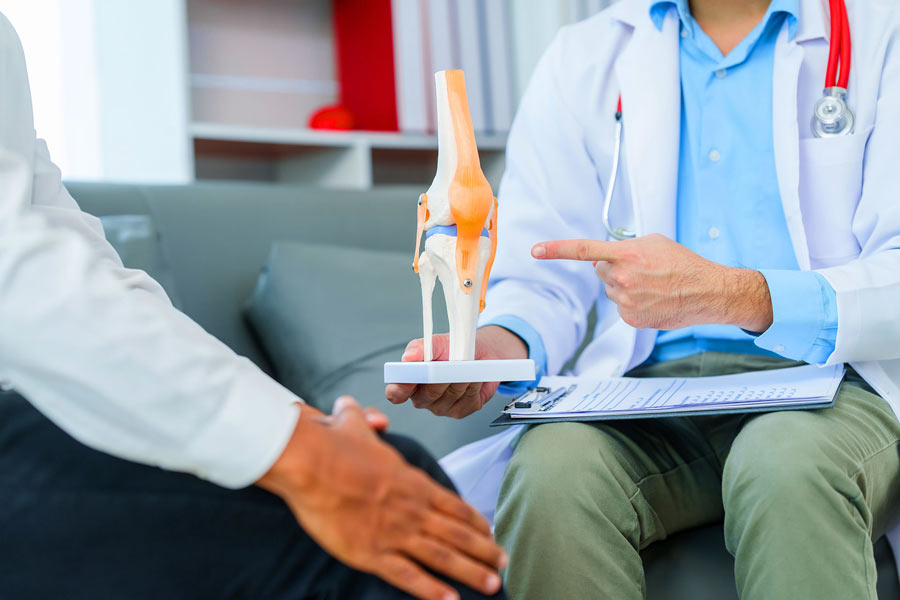
06 Jul How to Enhance Musculoskeletal Health? Proactive Tips
Musculoskeletal health is fundamental to our daily lives, affecting everything from mobility to overall well-being. It involves the intricate system of bones, muscles, and joints working together to support our body’s structure and enable movement. At RegeneSpine, we’re dedicated to helping you maintain and improve your musculoskeletal health through proactive measures. Let’s dive into what you can do to keep your musculoskeletal system in top shape.
Understanding Musculoskeletal Health
The musculoskeletal system is a complex network of bones, muscles, and joints that provides support, stability, and movement to the body. When one part of this system is compromised, it can lead to a range of issues, from arthritis and osteoporosis to back pain and muscle strains. Understanding how this system works and the common issues that affect it is the first step towards maintaining its health.
Components of the Musculoskeletal System
- Bones: Provide structure and protect organs.
- Muscles: Enable movement and maintain posture.
- Joints: Allow for flexibility and movement.
Common Issues and Conditions
- Arthritis: Inflammation of the joints causing pain and stiffness.
- Osteoporosis: Weakening of bones, making them fragile and more likely to break.
- Back Pain: Often caused by muscle strain, ligament sprain, or disc problems.
Benefits of Proactive Health Management
Taking proactive steps to care for your musculoskeletal system can significantly reduce the risk of injuries and degenerative conditions. By maintaining a healthy lifestyle and being mindful of your body’s needs, you can enjoy greater mobility, less pain, and a better quality of life as you age.
Advantages of Proactive Measures
- Injury Prevention: Strengthening muscles and bones helps prevent falls and fractures.
- Reduced Pain: Proper care can alleviate chronic pain conditions.
- Improved Mobility: Regular exercise and proper ergonomics enhance flexibility and movement.
Proactive Tips for Musculoskeletal Health
Exercise and Physical Activity
Regular exercise is crucial for strengthening muscles and bones, improving joint mobility, and maintaining a healthy weight. Aim for a balanced routine that includes:
- Flexibility Exercises: Yoga and stretching improve joint flexibility and muscle elasticity.
- Strength Training: Lifting weights or using resistance bands to strengthen muscles and bones.
- Cardiovascular Exercise: Activities like walking, swimming, and cycling improve overall fitness and endurance.
Nutrition and Diet
A balanced diet rich in essential nutrients supports bone and muscle health and helps reduce inflammation.
- Calcium and Vitamin D: Essential for bone health. Include dairy products, leafy greens, and fortified foods in your diet.
- Protein: Crucial for muscle repair and growth. Good sources include lean meats, beans, and nuts.
- Anti-Inflammatory Foods: Incorporate fruits, vegetables, and omega-3 rich foods like fish to reduce inflammation.
Posture and Ergonomics
Proper posture and ergonomics can prevent strain and injury, especially for those who spend long hours sitting or standing.
- Ergonomic Workspaces: Adjust your chair, desk, and computer to support good posture.
- Proper Lifting Techniques: Bend your knees, not your back, when lifting heavy objects.
- Frequent Breaks: Take regular breaks to stretch and move around.
Lifestyle Modifications
Your lifestyle choices can significantly impact your musculoskeletal health. Consider the following:
- Quit Smoking: Smoking can weaken bones and decrease blood flow to muscles and joints.
- Manage Stress: Chronic stress can lead to muscle tension and pain. Practice relaxation techniques like meditation or deep breathing.
- Get Enough Sleep: Quality sleep is essential for muscle recovery and overall health.
Preventive Care and Regular Check-Ups
Regular check-ups with healthcare professionals can help detect and address musculoskeletal issues early on.
- Routine Screenings: Regular screenings and diagnostic tests can identify problems before they become severe.
- Preventive Care: Preventive measures, such as physical therapy and early interventions, can keep minor issues from escalating.
Alternative Therapies and Treatments
Complementary therapies can also play a role in maintaining musculoskeletal health.
- Acupuncture: Can help alleviate pain and improve joint function.
- Chiropractic Care: Focuses on spinal alignment to relieve pain and improve mobility.
- Regenerative Medicine: Innovative treatments offered by RegeneSpine, such as stem cell therapy, can promote healing and reduce inflammation.
Conclusion
Maintaining musculoskeletal health through proactive measures is essential for a life of mobility and comfort. By incorporating regular exercise, a balanced diet, proper ergonomics, and preventive care into your routine, you can significantly enhance your musculoskeletal health. At RegeneSpine, we are committed to helping you achieve this through personalized care and innovative treatments.
Ready to take the next step towards better musculoskeletal health? Explore the services offered by RegeneSpine and schedule a consultation today. Let us help you create a personalized plan that fits your lifestyle and health goals.
